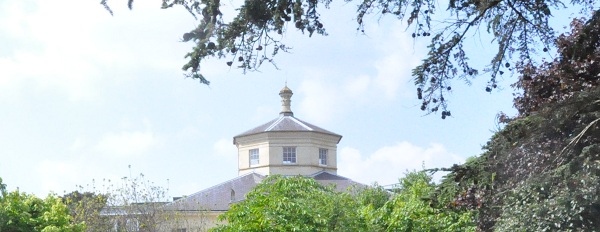Why Support Downing?
 Most alumni know that the founding legacy of Sir George Downing, intended to be £32 million (in today’s terms), was contested for 40 years (for a timeline of the College's history, click here). The litigation cost at least £20 million, leaving very little with which to build a college – and nothing with which to fund its endowment. Because of its initial penury, the College held many appeals in the 19th and 20th centuries, most of which were focused on buildings and physical improvements to the Domus to allow students to be housed and taught. The matter of increasing the College's endowment has been on the back burner for 200 years, such that Downing College is in the bottom half of the league table that compares the endowments of the 31 Cambridge colleges.
Most alumni know that the founding legacy of Sir George Downing, intended to be £32 million (in today’s terms), was contested for 40 years (for a timeline of the College's history, click here). The litigation cost at least £20 million, leaving very little with which to build a college – and nothing with which to fund its endowment. Because of its initial penury, the College held many appeals in the 19th and 20th centuries, most of which were focused on buildings and physical improvements to the Domus to allow students to be housed and taught. The matter of increasing the College's endowment has been on the back burner for 200 years, such that Downing College is in the bottom half of the league table that compares the endowments of the 31 Cambridge colleges.
To Maintain Excellence
 Even in these testing financial circumstances, Downing has always achieved far beyond its means. It is regularly in the top half (12th of 31, in 2013; 11th of 31 in 2014; 9th of 31 in 2015) of the Tompkins Table for academic performance, where its best position so far was 3rd in 2007. Our sports men and women are hugely successful in their fields - demonstrated by the Women's boat's long tenure as the Head of River in the Lents and Mays and the Men's boat's 2nd place, and by Downing's place as Cupper’s champions in the Rugby in 2013. Members of College have achieved distinction in many areas, such as law (nine higher court judges have been educated at Downing, for example), medicine, business, theatre, economics and finance. Click here to see a list of some of Downing's famous alumni.
Even in these testing financial circumstances, Downing has always achieved far beyond its means. It is regularly in the top half (12th of 31, in 2013; 11th of 31 in 2014; 9th of 31 in 2015) of the Tompkins Table for academic performance, where its best position so far was 3rd in 2007. Our sports men and women are hugely successful in their fields - demonstrated by the Women's boat's long tenure as the Head of River in the Lents and Mays and the Men's boat's 2nd place, and by Downing's place as Cupper’s champions in the Rugby in 2013. Members of College have achieved distinction in many areas, such as law (nine higher court judges have been educated at Downing, for example), medicine, business, theatre, economics and finance. Click here to see a list of some of Downing's famous alumni.
To Mind the Gap
Downing College has successfully negotiated its way since the underendowment of its foundation, despite the impact of the recent economic crisis, cuts in government funding since 1999 and the change of charitable status. Nevertheless, it still experiences an annual deficit caused by the difference between its endowment income and its operating expenses. This deficit translates into an endowment shortfall of £2 million which currently has to be bridged by other income souces each year which may not be sustainable in the long term. The only way to achieve true financial security is to build the endowment to close this annual gap.
To achieve our Goals
 The funding landscape in higher education is changing beyond recognition. Government cuts and our inability to set student fees make for an uncertain environment. If Downing is to continue as a pre-eminent centre for undergraduate teaching, postgraduate research, sporting, musical and theatrical talent, its endowment must be raised to the level that George Downing intended, or higher. In order to do this, we need to raise at least £20 million and to take the endowment to £50 million.
The funding landscape in higher education is changing beyond recognition. Government cuts and our inability to set student fees make for an uncertain environment. If Downing is to continue as a pre-eminent centre for undergraduate teaching, postgraduate research, sporting, musical and theatrical talent, its endowment must be raised to the level that George Downing intended, or higher. In order to do this, we need to raise at least £20 million and to take the endowment to £50 million.
Because you can Contribute with Confidence
 Downing College’s management practices mean that donors can be confident that their contributions will be effective and will go to the core of what they have chosen to support. External experts agree that management of Downing College is highly professional, particularly in comparison to the wider field of higher education. Downing is proud to have focused on cost control since 1997, and to have cut costs by 12.2% in the last three years. It collaborates with other colleges whenever it can in order to counter diseconomies of scale. It is a leader in adopting modern accounting and has the highest degree of transparency of all our peers (please see Downing College's Annual Reports). Highly skilled alumni and external experts advise the College and are members of the Investment Committee, the Remuneration Committee and the Development Committee.
Downing College’s management practices mean that donors can be confident that their contributions will be effective and will go to the core of what they have chosen to support. External experts agree that management of Downing College is highly professional, particularly in comparison to the wider field of higher education. Downing is proud to have focused on cost control since 1997, and to have cut costs by 12.2% in the last three years. It collaborates with other colleges whenever it can in order to counter diseconomies of scale. It is a leader in adopting modern accounting and has the highest degree of transparency of all our peers (please see Downing College's Annual Reports). Highly skilled alumni and external experts advise the College and are members of the Investment Committee, the Remuneration Committee and the Development Committee.
Because Every Donation Counts
At first sight, £20 million appears to be a huge sum in these financially straightened times. However, the College is in touch with 7000 alumni and, with this number of potential supporters, the goal should seem less daunting. Taken as a collective effort – as all Downing's appeals have been for 200 years – when asked, "Will my donation make a difference?", the answer is simply, "Yes."
